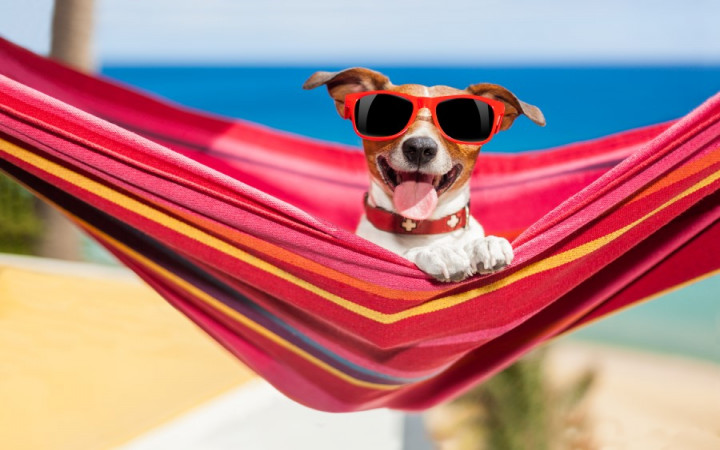We wandered over to the Wonderopolis gymnasium the other day, and you won't believe what we saw. A group of aardvarks and badgers were playing a game of basketball. If you've ever seen pictures of an aardvark or a badger, then you can probably imagine how that game turned out.
After the game, we wandered into the locker room, and you won't believe what we smelled. Whew! If there is a more foul odor than the combination of badger gym socks and aardvark arm pits, we don't know what it is! Our noses may never be the same.
As we were running away from the locker room with our fingers clamped over our noses, we WONDERed why these animals smelled so bad. Did they sweat that much during the game? Actually, do they even sweat at all? And why do humans sweat so much?
In humans, sweating — also known as perspiration — is the body's natural way of regulating body temperature. Our many sweat glands produce sweat, which is mostly water with a little bit of potassium, salt, and a few other minerals.
When our bodies heat up, our millions of sweat glands produce sweat, which is then released from the body through our skin. As sweat evaporates from our skin, it carries away heat and lowers the body's temperature.
What about animals, though? As it turns out, only animals who are mammals have sweat glands. You've probably noticed that you don't see cats and dogs sweating like humans. Although cats and dogs are mammals like us, most mammals don't have large numbers of sweat glands like humans do. Only primates, such as monkeys and apes, and horses have lots of sweat glands that allow them to sweat as much as humans do.
All those other mammals still need to regulate their body temperature, though. Without lots of sweat glands like humans have, most animals have to find other ways to cool themselves down when they get too hot.
For example, pigs and hippopotamuses roll in the mud to cool themselves down. As the water in the mud evaporates from their skin, it carries away heat in the same way that sweat does in humans. Some people think hippos sweat blood, but the red-orange oily substance they secrete through their pores isn't sweat. It's a substance that helps to keep their skin moist and protected from the Sun's ultraviolet rays.
Likewise, many animals, such as dogs, pant to keep cool. Panting expels hot air and brings in cooler air, which then helps moisture in the mouth evaporate quickly to reduce body temperature.
Some animals even use their ears to help them keep cool. For example, jackrabbits can constrict and expand the blood vessels in their large ears to adjust the rate at which they lose heat through them. Elephants also use their large ears to keep cool by flapping them like a fan.
Some mammals that do have a few sweat glands produce small amounts of sweat through their paws. So maybe that does explain those stinky badger gym socks!





